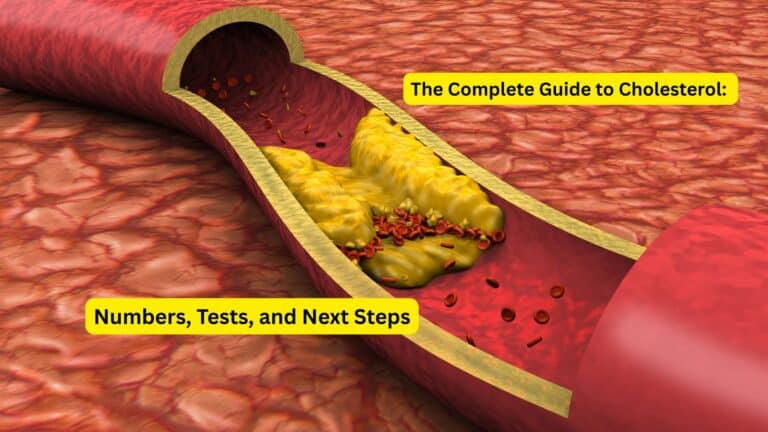When it comes to protecting your heart, most people think about diet and exercise—but they often overlook one of the most crucial factors: sleep. Quality sleep isn’t just about feeling rested; it’s a fundamental pillar of cardiovascular health that directly impacts your heart’s ability to recover and function optimally. From regulating blood pressure to controlling inflammation, the hours you spend sleeping each night play a vital role in preventing heart disease and supporting long-term cardiovascular wellness.
The Sleep–Heart Connection
Sleep serves as your body’s nightly maintenance period, when critical cardiovascular repair processes take place. During deep sleep, your heart rate and blood pressure naturally decrease, giving your cardiovascular system time to recover from the day’s demands. This restorative process helps reduce inflammation throughout the body, stabilizes glucose metabolism, and allows stress hormones like cortisol to reset to healthy levels.
How Sleep Supports Heart Recovery
The relationship between sleep and heart health operates through several interconnected pathways. While you sleep, your body releases growth hormone, which helps repair damaged blood vessels and heart tissue. Additionally, adequate sleep helps maintain the delicate balance of hormones that regulate appetite, stress response, and inflammation—all of which directly impact cardiovascular risk factors.
Poor sleep quality or insufficient sleep duration disrupts these protective mechanisms. When sleep is compromised, inflammatory markers like C-reactive protein increase, blood pressure remains elevated longer, and glucose regulation becomes impaired. These changes create a cascade of effects that strain the cardiovascular system and increase the risk of developing heart disease over time.
The Statistical Reality
The numbers paint a clear picture of sleep’s impact on heart health. Research shows that both inadequate and excessive sleep significantly elevate cardiovascular disease risk, creating what scientists call a “J-shaped” relationship. This means that while too little sleep is harmful, sleeping too much can also pose risks to your heart health.
Sleep Duration & Cardiovascular Risk
Finding the sweet spot for sleep duration is crucial for optimal heart health. Most adults benefit from 7 to 9 hours of sleep per night, but deviating from this range in either direction can have serious cardiovascular consequences. Understanding these risks can help you prioritize sleep as an essential component of your heart health strategy.
The Dangers of Too Little Sleep
Short sleep duration, typically defined as less than 6 hours per night, creates significant stress on the cardiovascular system. Individuals sleeping 5-6 hours nightly face increased risk of developing cardiovascular disease, particularly those under 40 years old. The mechanisms behind this increased risk include elevated blood pressure, increased inflammation, and impaired glucose metabolism.
Sleep deprivation triggers a stress response that keeps your body in a state of high alert. This constant activation leads to sustained elevation in blood pressure and heart rate, forcing your heart to work harder throughout the day. Over time, this increased workload contributes to the development of hypertension, arterial stiffening, and increased risk of heart attack and stroke.
The Risks of Oversleeping
While insufficient sleep gets most of the attention, sleeping too much also poses cardiovascular risks. Adults who sleep more than 9 hours face a 43% higher risk of cardiovascular disease if aged 60-74 years, and a striking 107% higher risk at ages 50-59, compared to those maintaining 7-8 hours nightly.
Long sleep duration may indicate underlying health issues such as sleep apnea, depression, or other chronic conditions that independently affect heart health. Additionally, excessive sleep can disrupt circadian rhythms and lead to decreased physical activity levels, both of which negatively impact cardiovascular function.
Sleep Quality and Consistency
Beyond duration, the quality and regularity of your sleep patterns play equally important roles in cardiovascular health. Poor sleep quality—characterized by frequent awakenings, difficulty falling asleep, or non-restorative sleep—can be just as harmful as insufficient sleep duration. Meanwhile, maintaining consistent sleep-wake cycles helps synchronize your body’s internal clock with optimal cardiovascular function.
The Impact of Sleep Quality
Sleep quality encompasses several factors, including how quickly you fall asleep, how often you wake during the night, and how refreshed you feel upon waking. Poor quality sleep leads to fragmented rest periods that prevent your body from completing essential repair processes. This fragmentation results in sustained elevation of stress hormones and inflammatory markers that directly harm cardiovascular health.
When sleep is frequently interrupted, your blood pressure doesn’t get the chance to dip naturally during the night—a phenomenon known as “non-dipping.” This lack of nocturnal blood pressure reduction is associated with increased risk of heart attack, stroke, and overall cardiovascular mortality.
Consistency Is Key
Perhaps even more important than perfect sleep duration is maintaining regular sleep patterns. Irregular sleep duration increases major cardiovascular event risk by up to 40%, including heart attack and stroke. Your cardiovascular system thrives on predictability, and erratic sleep schedules disrupt the natural circadian rhythms that help regulate blood pressure, hormone production, and cellular repair processes.
Shift workers and individuals with highly variable sleep schedules face particularly elevated cardiovascular risks. The constant disruption of their body’s internal clock creates chronic stress on the cardiovascular system, leading to accelerated development of heart disease and related conditions.
Sex and Age Differences
The relationship between sleep and heart health isn’t uniform across all populations. Gender and age significantly influence how sleep patterns affect cardiovascular risk, with men and older adults showing distinct vulnerability patterns. Understanding these differences can help tailor sleep optimization strategies for maximum heart health benefits.
Gender-Specific Risks
Men appear to be more susceptible to cardiovascular effects from poor sleep habits than women, though both sexes benefit from optimal sleep patterns. Research indicates that men show stronger associations between short sleep duration and cardiovascular disease development, possibly due to differences in hormone regulation, stress response, and lifestyle factors.
Studies reveal that longer sleep duration is associated with lower cardiovascular risk in males, while the relationship in women appears more complex and may be influenced by factors such as reproductive status and hormonal fluctuations. These gender differences suggest that men may need to be particularly vigilant about maintaining adequate sleep duration for heart health protection.
Age-Related Considerations
Age significantly modifies the relationship between sleep and cardiovascular health. Older adults face greater risks from both insufficient and excessive sleep, with the consequences becoming more pronounced after age 50. Sleep architecture naturally changes with aging, leading to lighter, more fragmented sleep that may require different management strategies.
Younger adults under 40 show increased sensitivity to short sleep duration, while middle-aged and older adults face elevated risks from both extremes of sleep duration. This age-related vulnerability underscores the importance of adapting sleep strategies throughout different life stages to maintain optimal cardiovascular protection.
Practical Steps to Improve Sleep for Heart Health
Optimizing sleep for cardiovascular health requires a comprehensive approach that addresses sleep hygiene, environmental factors, and lifestyle habits. The good news is that most sleep improvements can be achieved through relatively simple changes that yield significant benefits for heart health. Implementing these strategies consistently can help you achieve the restorative sleep your cardiovascular system needs.
Establish Consistent Sleep Schedules
Creating regular sleep and wake times is one of the most powerful tools for improving both sleep quality and cardiovascular health. Aim to go to bed and wake up at the same time every day, even on weekends. This consistency helps strengthen your body’s internal clock and promotes the natural blood pressure dips and hormone fluctuations that occur during healthy sleep.
Start by setting a target bedtime that allows for 7-9 hours of sleep before your desired wake time. Gradually adjust your current schedule by 15-30 minutes earlier or later each night until you reach your target. Once established, maintain this schedule consistently to allow your cardiovascular system to develop predictable patterns of rest and recovery.
Optimize Your Sleep Environment
Your bedroom environment significantly impacts sleep quality and, consequently, cardiovascular health. Keep your sleeping space cool, dark, and quiet to promote deep, uninterrupted sleep. The ideal bedroom temperature for most people falls between 65-68°F (18-20°C), as cooler temperatures facilitate the natural drop in core body temperature that signals sleep onset.
Invest in blackout curtains or an eye mask to minimize light exposure, which can disrupt circadian rhythms and interfere with the natural blood pressure variations that occur during sleep. Consider using a white noise machine or earplugs to mask disruptive sounds that could fragment your sleep and prevent cardiovascular recovery.
Address Lifestyle Factors
Several lifestyle modifications can significantly improve sleep quality and support cardiovascular health. Limit caffeine intake after 2 PM, as this stimulant can interfere with sleep onset and reduce sleep quality for up to 6 hours after consumption. Similarly, avoid alcohol close to bedtime, as it may initially promote drowsiness but leads to fragmented sleep and reduced REM sleep later in the night.
Establish a relaxing bedtime routine that signals to your body that it’s time to wind down. This might include gentle stretching, reading, or meditation practices that help transition your nervous system from the day’s stresses to a state conducive to restorative sleep. Regular physical activity during the day can also improve sleep quality, but avoid vigorous exercise within 3-4 hours of bedtime.
Screen for Sleep Disorders
If you consistently follow good sleep hygiene practices but still experience poor sleep quality or daytime fatigue, consider screening for sleep disorders such as sleep apnea. Sleep apnea is particularly dangerous for cardiovascular health, as it causes repeated breathing interruptions that stress the heart and blood vessels throughout the night.
Signs that warrant professional evaluation include loud snoring, gasping or choking during sleep, morning headaches, or excessive daytime sleepiness despite adequate time in bed. Early detection and treatment of sleep disorders can significantly reduce cardiovascular risk and improve overall quality of life.
FAQs
How many hours of sleep are recommended for heart health?
Most adults should aim for 7 to 9 hours of sleep per night for optimal cardiovascular protection. This range appears to minimize the risk of heart disease, stroke, and other cardiovascular complications. Both shorter and longer sleep durations are associated with increased cardiovascular risks.
Does irregular sleep timing affect the heart?
Yes, irregular sleep patterns significantly impact cardiovascular health. High variability in sleep duration and inconsistent bedtimes can increase the risk of major cardiovascular events by up to 40%. Maintaining consistent sleep schedules helps regulate blood pressure and other cardiovascular functions.
Is sleep quality as important as duration?
Absolutely. Poor sleep quality can be just as harmful to cardiovascular health as insufficient sleep duration. Fragmented or non-restorative sleep prevents the natural blood pressure dips and stress hormone regulation that occur during healthy sleep, leading to increased cardiovascular strain.
Can oversleeping harm the heart?
Yes, sleeping more than 9 hours regularly is associated with increased cardiovascular risks, particularly in middle-aged and older adults. Long sleep duration may indicate underlying health issues or disrupt normal circadian rhythms that support cardiovascular function.
Do men and women experience different risks?
Men tend to show stronger associations between short sleep duration and cardiovascular disease risk compared to women. However, both sexes benefit from optimal sleep patterns, and the relationship between sleep and heart health may be influenced by age, hormones, and other individual factors.
Conclusion
Quality sleep isn’t a luxury—it’s a necessity for optimal cardiovascular health. The evidence is clear: achieving 7-9 hours of consistent, high-quality sleep each night is just as important as eating well and exercising regularly for protecting your heart. By understanding the intricate connections between sleep patterns and cardiovascular function, you can make informed decisions that support both better rest and a healthier heart.
Taking action to improve your sleep habits today can yield significant benefits for your cardiovascular health tomorrow. Start with establishing consistent sleep schedules, optimizing your sleep environment, and addressing any factors that may be compromising your sleep quality. Remember that sleep optimization is an ongoing process that may require adjustments as your life circumstances and health status change.
To gain deeper insights into how your sleep patterns may be affecting your cardiovascular health, consider monitoring key biomarkers through comprehensive testing. Walk-In Lab offers convenient, affordable testing options that can help you track inflammation markers, glucose control, and other indicators of heart health—empowering you to make data-driven decisions about your sleep and overall wellness strategy.
This content is for informational purposes only and is not a substitute for professional medical advice, diagnosis, or treatment. Always seek the advice of your physician or other qualified health provider with any questions you may have regarding a medical condition.






